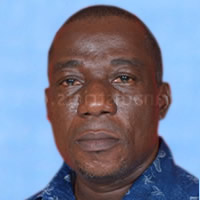The major markets in the District are the Juapong and the Mafi Kumase markets. The Juapong market has bi-weekly market days (Wednesdays and Saturdays) while Mafi Kumase market has only Mondays as market days. Both markets enjoy wide patronage with traders coming from as far as Accra, Kofiridua, Aflao and other places beyond the Region.
Both markets are being reconstructed with proper structures and facilities under a Government / World Bank (VIP) sponsorship.
Other smaller markets are found at Adidome, Mafi Avedo, Battor and Mafi Agorve but they lack proper structures and need to be improved upon.
Investment and Business Potential
Agriculture is the leading sector in the district’s economy, although it is still dominated by small-scale unorganised farmers who depend mainly on simple, labour-intensive production techniques. This creates opportunities for nucleus agricultural sector investor who could use the district’s farmers as outgrowers, raising their productivity and ultimately reaping handsome profits.
The major crops cultivated are maize, cassava, groundnuts, cowpea, sugar cane, vegetables oil palm, rice and mangoes. The newly introduced idea of sunflower cultivation has been accepted in the district with all seriousness and is expected to become a major source of income to farmers and foreign currency revenues for exporters, since demand is very high abroad.
As much as practicable, groups, particularly of women and youths, as well as individuals, have received financial assistance from the District Assembly in the form of loans and subsidised tractor services to help them boast productivity. Livestock plays an important role in the district. Indeed, Central Tongu District is one of the largest cattle producing areas in the country. Of particular note are the ostrich farms that have been established by private investors at Dedukope.
There are plans to extend this investment to other parts of the district, especially in and around Dekpoe, and there is plenty of opportunity for new private investors entering into this field, since it has been proven that Ostrich Farming can be very profitable in the district for those with the capital and the know-how. The District Assembly is particularly interested in providing support for such investors.
Two irrigation projects, under the Irrigation Development Authority, will soon take off at Volo and Agorveme. It is expected that nearly 1000 acres of land will be irrigated under these projects, creating new opportunities for investors, who lease such land. The district is home to Juapong Textiles Limited, located at Juapong at the western end of the district.
There are immense industrial opportunities across the district, especially for enterprises which may require large parcels of land, as the district controls large tracts of land which can be acquired with ease. A vast stretch of the Volta River downstream passes through the district and this can be exploited for industrial purposes too. The district also has large clay deposits capable of supporting bricks, tiles, pottery and ceramic industries. The demand for such products is very high, both in the North Tongu District and the neighbouring districts.
Lime production in the past was a vibrant industry, which thrived on the large oyster shell deposits in the district, but the industry has been on the wane, following the construction of the Akosombo Dam. However, resurgence is viable, and only an inflow of private investment is needed to make this happen.
Importantly, the district’s location is vey strategic in the sense that it has proximity to both Accra, the national capital, and Ho, the regional capital, which assures investors of easy access to the administrative and regulatory centres, as well as the vibrant urban markets.
Development goals & objectives
The Development of the North Tongu District Assembly for the plan period, 2006 to 2009 is to improve access to basic economic and social services for all as well as improve local governance in the in the District to create an enabling environment for private sector led agriculture and state infrastructural development to stimulate local growth in agricultural production
District Finance
A large number of shops are situated at major towns in the District. Located mainly around markets and irregularly along the main roads of towns, these shops trade in various goods ranging from household items to construction materials and equipment. Some also deal with the supply of agricultural implements and chemicals. The District also has large number chemical shops, which supply the populace with first aid drugs.
Private Sector Competitiveness
- Poor road network.
- Office and residential accommodation for District Assembly staff.
- Inadequate means of transport for staff.
- Inadequate local revenue mobilisation
- Absence of sustainable investment in the industrial sector to generate employment.
- Inadequate staffing
- Inadequate information and opportunities on markets
- Land acquisition.
- Low level of energy supply (Electricity and LPG Gas.
- Inadequate access to credit facilities.
- Lack of motivation for youth to enter into Agriculture.
- Low level of entrepreneurial skills.\
- Heavy dependence on rainfall for agriculture.
- Underdeveloped tourism sector
- Deforestation
- Low crop yields
- Low fish production
- Poor husbandry Practices.
- Destruction of crops by livestock
Financial institution
Banking and Insurance
There are two Rural Banks at Adidome and Mepe;
and one Agricultural Development Bank at Juapong.
There are also two Rural Bank Agencies at Battor and
Mafi Kumase.
The small number of banks in the District is mainly due to low level of economic activities.
Date Created : 11/17/2017 8:16:54 AM




 facebook
facebook twitter
twitter Youtube
Youtube TOLL FREE 0800 430 430
TOLL FREE 0800 430 430 +233 593 831 280
+233 593 831 280 GPS: GE-231-4383
GPS: GE-231-4383 info@ghanadistricts.com
info@ghanadistricts.com Box GP1044, Accra, Ghana
Box GP1044, Accra, Ghana